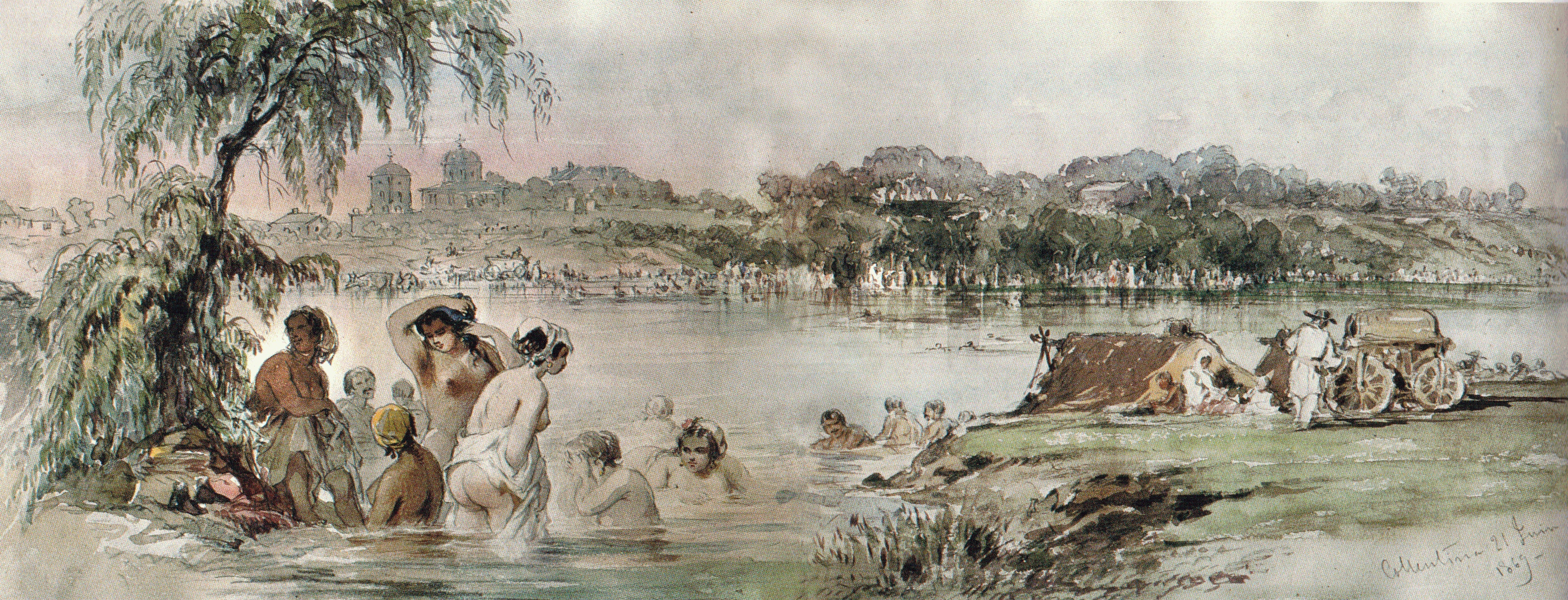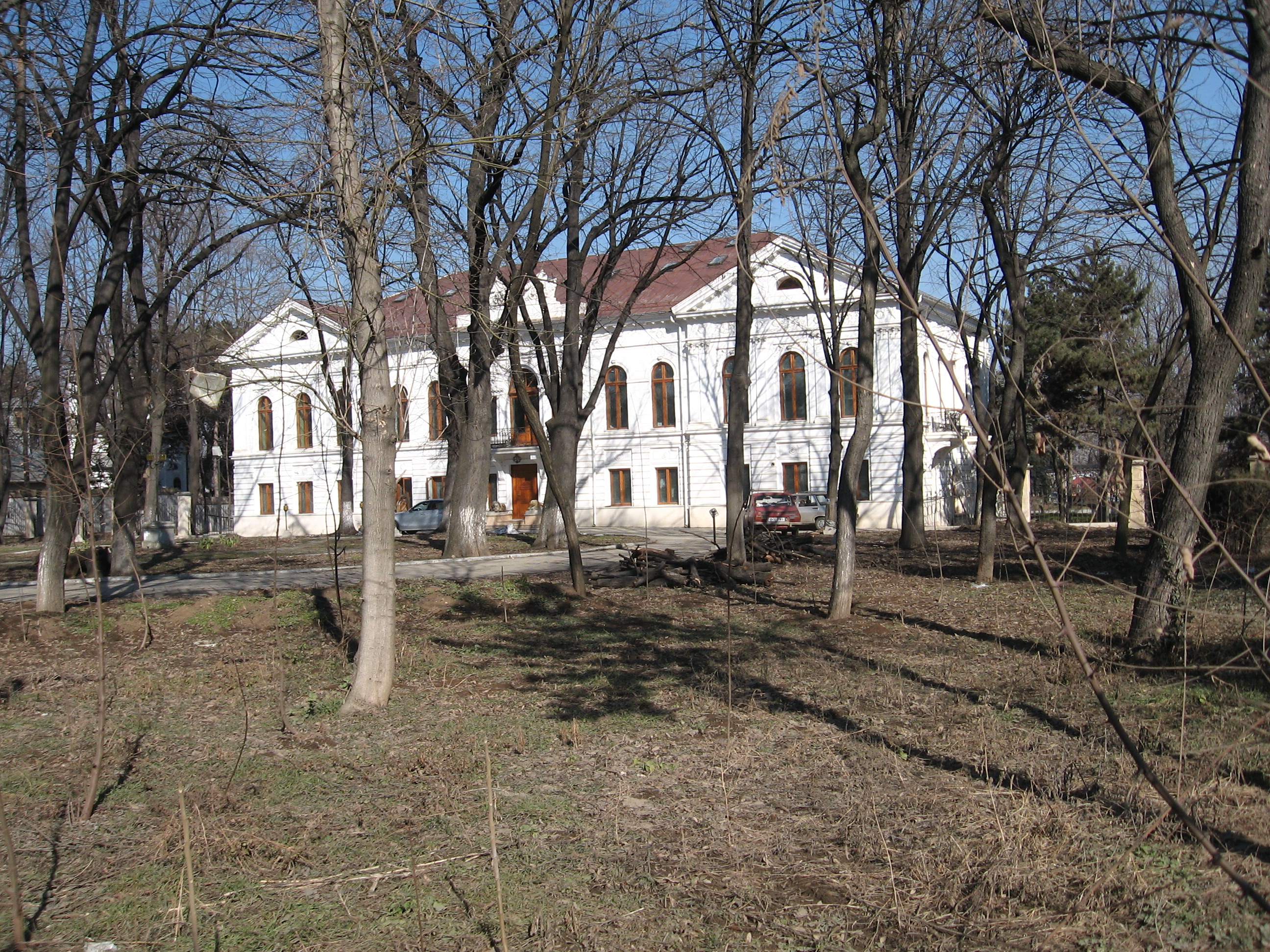colentina, bucharest on:
[Wikipedia]
[Google]
[Amazon]



 Colentina is a neighbourhood in
Colentina is a neighbourhood in
 The village of Colentina located near the Plumbuita Monastery was first mentioned on the map of H. C. Schütz of 1780 and on I. F. Schmidt's 1788 map. An Austrian map of 1791 shows the village as being located at the crossroad of the routes leading to Fundeni, Afumați, Ștefănești, and Pipera, with the high road bound for
The village of Colentina located near the Plumbuita Monastery was first mentioned on the map of H. C. Schütz of 1780 and on I. F. Schmidt's 1788 map. An Austrian map of 1791 shows the village as being located at the crossroad of the routes leading to Fundeni, Afumați, Ștefănești, and Pipera, with the high road bound for


Bucharest
Bucharest ( , ; ) is the capital and largest city of Romania. The metropolis stands on the River Dâmbovița (river), Dâmbovița in south-eastern Romania. Its population is officially estimated at 1.76 million residents within a greater Buc ...
's Sector 2. It is located on the north-east of the city and is named after the nearby Colentina River.
Name
A localfolk etymology
Folk etymology – also known as (generative) popular etymology, analogical reformation, (morphological) reanalysis and etymological reinterpretation – is a change in a word or phrase resulting from the replacement of an unfamiliar form by a mo ...
says that the name is derived from "colea-n-tină" (''there, in the mud''), this being the answer given by a '' spătar'' to Matei Basarab
Matei Basarab (; 1588, Brâncoveni, Olt – 9 April 1654, Bucharest) was the voivode (prince) of Wallachia from 1632 to 1654.
Reign
Much of Matei's reign was spent fighting off incursions from Moldavia, which he successfully accomplished in 1 ...
, who asked the former where he had defeated the Ottoman army.
History
Early history
Until the second half of the 18th century, the area of today's Colentina was forested, as it was on the map of Stolnic Constantin Cantacuzino.Ghinea, p.243 Nevertheless, archeologists found traces of small settlements in Colentina, dated from the 6th-7th century; in one of such settlements, archeologists found a Justinian-era Byzantine bronze coin dated 539.Giurescu, p.39Monastery estate
 The village of Colentina located near the Plumbuita Monastery was first mentioned on the map of H. C. Schütz of 1780 and on I. F. Schmidt's 1788 map. An Austrian map of 1791 shows the village as being located at the crossroad of the routes leading to Fundeni, Afumați, Ștefănești, and Pipera, with the high road bound for
The village of Colentina located near the Plumbuita Monastery was first mentioned on the map of H. C. Schütz of 1780 and on I. F. Schmidt's 1788 map. An Austrian map of 1791 shows the village as being located at the crossroad of the routes leading to Fundeni, Afumați, Ștefănești, and Pipera, with the high road bound for Bucharest
Bucharest ( , ; ) is the capital and largest city of Romania. The metropolis stands on the River Dâmbovița (river), Dâmbovița in south-eastern Romania. Its population is officially estimated at 1.76 million residents within a greater Buc ...
. The earliest houses were built at the crossroad and around the Cârstienești Bridge across the Colentina river, close to the gate of the monastery.
Soon after, the Plumbuita Monastery, which owned the land in Colentina built and rented ('' embatic'') grocer's shops, pubs, inns, as well as agricultural land.Ghinea, p.244 In the early 19th century, among the renters was the Paharnic Andronache Teohari, whose name was given to the Andronache estate in Northern Colentina, the name being still in use today.
The houses were built especially along the road towards Bucharest, while the houses on the island of the monastery were still spread out. Due to this, in 1837, the ''ocârmuitor'' of Ilfov County
Ilfov () is the Counties of Romania, county that surrounds Bucharest, the capital of Romania. It used to be largely rural, but, after the fall of communism, many of the county's villages and communes developed into high-income commuter towns, whi ...
asked the ''hegumen
Hegumen, hegumenos, or igumen (, trans. ), is the title for the head of a monastery in the Eastern Orthodox and Eastern Catholic Churches, or an archpriest in the Coptic Orthodox Church, similar to the title of abbot. The head of a convent of ...
'' of the monastery to donate plots for the peasants on the domains to build their houses according to a plan. The people who settled in Colentina were a heterogenous mix: some were Romanians from across Wallachia, others were Greeks, Bulgarians or Serbs.
During the 1821 revolts that preceded the Greek War of Independence
The Greek War of Independence, also known as the Greek Revolution or the Greek Revolution of 1821, was a successful war of independence by Greek revolutionaries against the Ottoman Empire between 1821 and 1829. In 1826, the Greeks were assisted ...
, Alexander Ypsilantis
Alexandros Ypsilantis (12 December 1792 – 31 January 1828) was a Greek nationalist politician who was member of a prominent Phanariot Greeks, Phanariot Greek family, a prince of the Danubian Principalities, a senior officer of the Imperial R ...
and the Filiki Eteria
Filiki Eteria () or Society of Friends () was a secret political and revolutionary organization founded in 1814 in Odesa, Odessa, whose purpose was to overthrow Ottoman Empire, Ottoman rule in Ottoman Greece, Greece and establish an Independenc ...
, coming from Moldavia settled on the field on the Bucharest-ward bank of Colentina.Ghinea, p.245 The same place was used for the consecration of the flags of the first national militia in 1830 and the place where the first soldiers of the National Army took their oath of allegiance in 1834. After this, for a long time, the same field was used for military exercise
A military exercise, training exercise, maneuver (manoeuvre), or war game is the employment of military resources in Military education and training, training for military operations. Military exercises are conducted to explore the effects of ...
s.
Commune of Colentina-Fundeni
The 1863 law on thesecularization of monastery estates in Romania
The law on the secularization of monastic estates in Romania was proposed in December 1863 by ''Domnitor'' Alexandru Ioan Cuza and approved by the Parliament of Romania. By its terms, the Romanian United Principalities (as the state was then kno ...
made the Colentina estate property of the state and in March 1864, the rural commune of Colentina-Fundeni was created, which had three component villages: Plumbuita, Colentina and Fundeni. It was around this time that a primary school was built in the city.
Toward the end of the 19th century, Colentina continued to keep its agricultural economy, much of the land being owned by the large landowners, while the inhabitants owned only a sixth of the agricultural land. The commune had six abattoir
In livestock agriculture and the meat industry, a slaughterhouse, also called an abattoir (), is a facility where livestock animals are slaughtered to provide food. Slaughterhouses supply meat, which then becomes the responsibility of a meat ...
s, three in Colentina and three in Plumbuita, killing around 12000 cows each year, the meat being then sold in Bucharest and to the 26 pubs and 5 inns that Colentina had at the time.Ghinea, p.246
In the 1890s, the village of Colentina had a population of 254, the village of Plumbuita 288 and the village of Fundeni 279. The 1899 Romanian Census shows that three more villages were created in the commune: Andronache and Boldu, on the northern part of the former Plumbuita estate, while the Tei village was created around the Ghica Palace, the commune having a population of 1048, of which 46 foreign citizens, most of which Transylvania
Transylvania ( or ; ; or ; Transylvanian Saxon dialect, Transylvanian Saxon: ''Siweberjen'') is a List of historical regions of Central Europe, historical and cultural region in Central Europe, encompassing central Romania. To the east and ...
n refugees.
Bucharest neighbourhood
In 1939, Colentina, together with Pipera, Tei, Plumbuita, Andronache, and Fundeni were made part of Bucharest. The neighbourhood suffered a lot of modifications in the mid 1970s and 1980s when houses were replaced with 8-to-10-storey apartment blocks, like in Tei,Obor
Obor is the name of a square and the surrounding district of Bucharest, the capital of Romania. There is also a Bucharest Metro station (on the Bucharest Metro Line M1, M1 line) named Obor metro station, Obor, which lies in this area. The dis ...
, and Calea Moșilor and has been recently the home of Arab and Chinese immigrants to Romania.
Notes
References
* Nicolae Ghinea, "Așezări sătești din sec. XV-XIX pe teritoriul orașului București", in ''București – Materiale de istorie și muzeografie'', VII, 1969. * Constantin C. Firescul vieții sale,Giurescu, p.38 ''Istoria Bucureștilor. Din cele mai vechi timpuri pînă în zilele noastre'', Bucharest, 1966External links
{{coord, 44, 28, N, 26, 09, E, region:RO_type:city_source:GNS-enwiki, display=title Districts of Bucharest Place names of Slavic origin in Romania